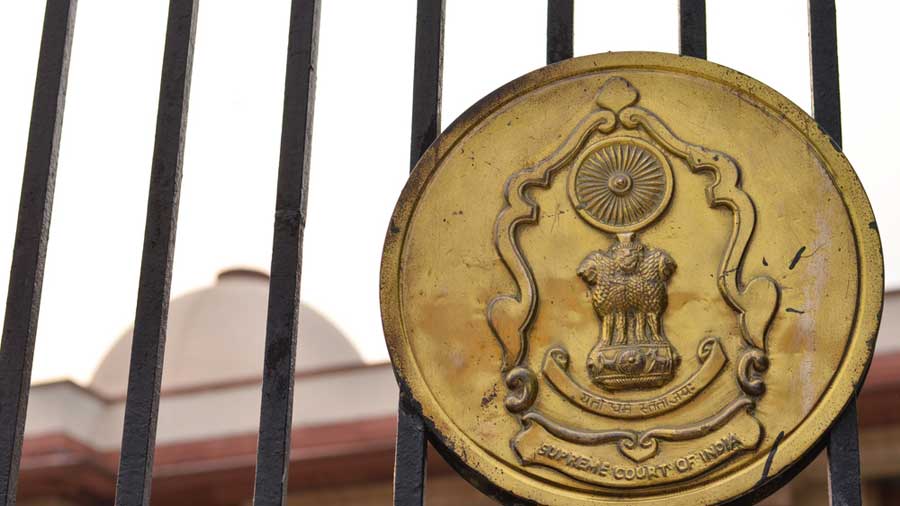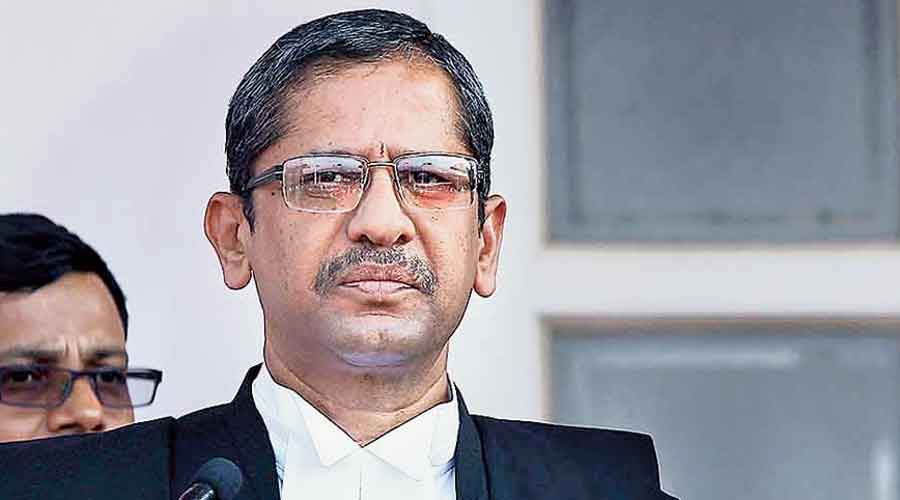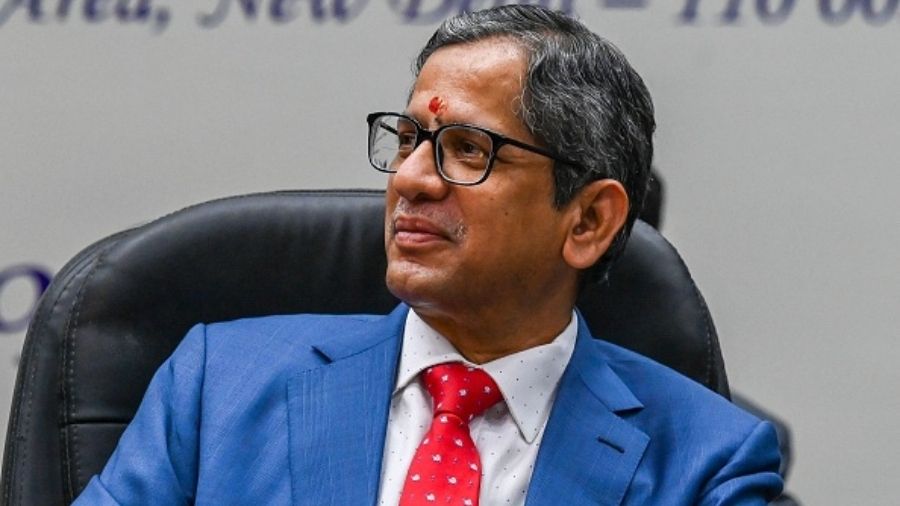Corporate entities cannot be allowed preferential hearing before the Supreme Court, a bench headed by the Chief Justice of India said on Monday, frowning on some big companies’ tendency to try and jump the queue and get their matters listed out of turn.
The bench of CJI N.V. Ramana and Justices Surya Kant and Hima Kohli gave vent to its ire during the mentioning hour in the morning when senior advocate C.U. Singh sought to mention the case of a corporate entity for an early hearing.
Justice Ramana said: “Mr Singh, we are still streamlining the system. How can all these corporate people come and start mentioning their matters? There are pending criminal appeals and other cases, too. We have to give priority to other people, particularly the weaker sections.”
Bail applications of hundreds of undertrials languishing in jails and other such matters are pending before the apex court, which had a backlog of 69,956 cases on September 4, 2021.
The CJI’s observation comes against the backdrop of considerable difficulties being faced by litigants and many lawyers because of the pandemic-induced freeze on physical hearings.
Several lawyers are peeved that the pandemic crisis has turned out to be a boon for some select law firms and senior advocates, including those who have relocated themselves to London.
The lawyers feel that these law firms and senior lawyers have hijacked the virtual system of hearings and are opposing the resumption of physical hearing.
Early this month, the CJI had introduced the hybrid system of hearing, under which advocates have the option of either appearing in person in the court after complying with the standard operating procedure drawn up by the apex court, or continuing to be in the virtual mode.
So far, the hybrid system has had few takers, and much of the hearing continues to be held online.
Some lawyers have said in private that the virtual system is being patronised by senior lawyers and big law firms as it works to their advantage. Virtual hearings make it possible for lawyers settled in cities like London or holidaying in Goa and exotic locations abroad to appear in quick succession in various courts on a single day and earn astronomical fees, they said.
Some senior lawyers have installed nearly a dozen computers or laptops so that they can appear on the same day in different courts, such as the Supreme Court and big high courts, as well as tribunals handling corporate disputes, sources said.
But most of the lawyers do not have such rich clientele, and their livelihood has been hit in the absence of physical hearings.
“Many lawyers are now finding it difficult to make ends meet. Virtual hearings in courts continue to elude them. There is simply no work for them,” said senior corporate lawyer and former additional solicitor-general of India, Bishwajit Bhattacharyya.
“In the interest of the vast majority of our sisters and brothers in the legal profession, it’s time the courts opened for 100 per cent physical hearings with strict Covid protocol.”
At a meeting on Monday, the executive committee of the Supreme Court Bar Association (SCBA) termed the continued closure of the Supreme Court a violation of the fundamental rights of practising lawyers.
SCBA president and senior advocate Vikas Singh told The Telegraph that barring one member, the committee resolved that physical hearings in the Supreme Court should resume immediately.
Singh said: “The Supreme Court building is the work abode of the Supreme Court lawyers, and access to it is being denied, which amounts to a clear infringement to our fundamental rights.
“The hybrid (system of) hearings has been a non-starter because, first, the virtual option is given to lawyers who find it convenient. Second, lawyers who prefer physical hearings find the SoP unjustified.”












